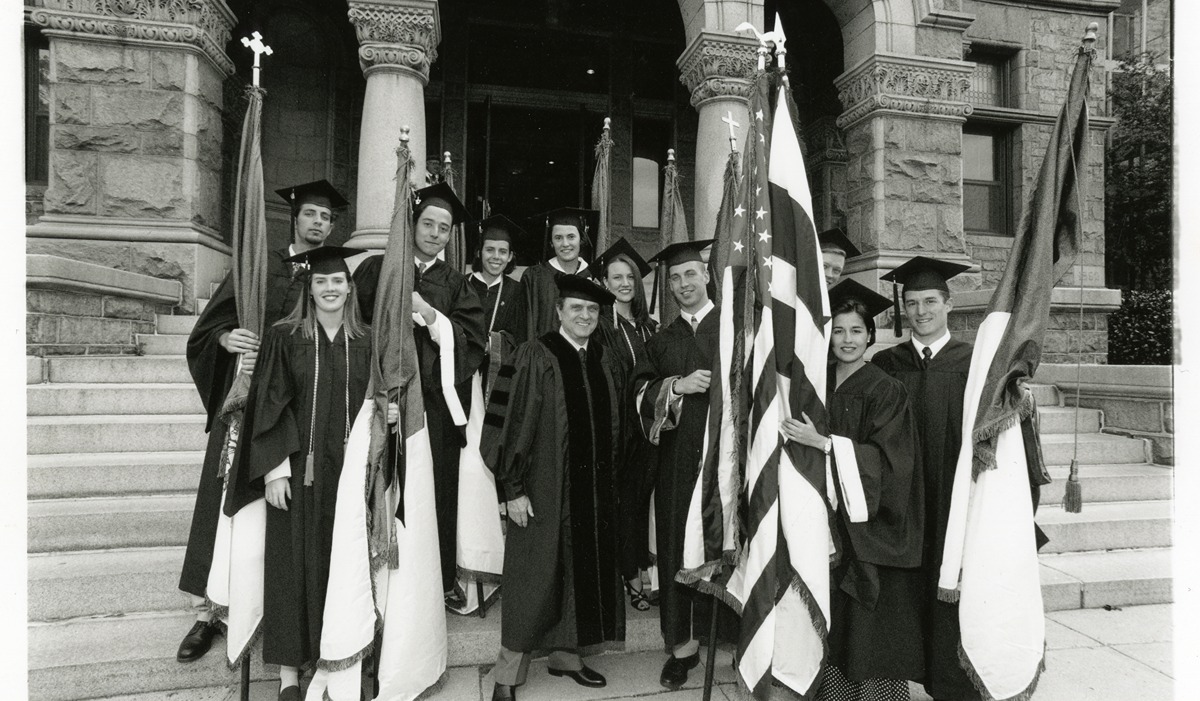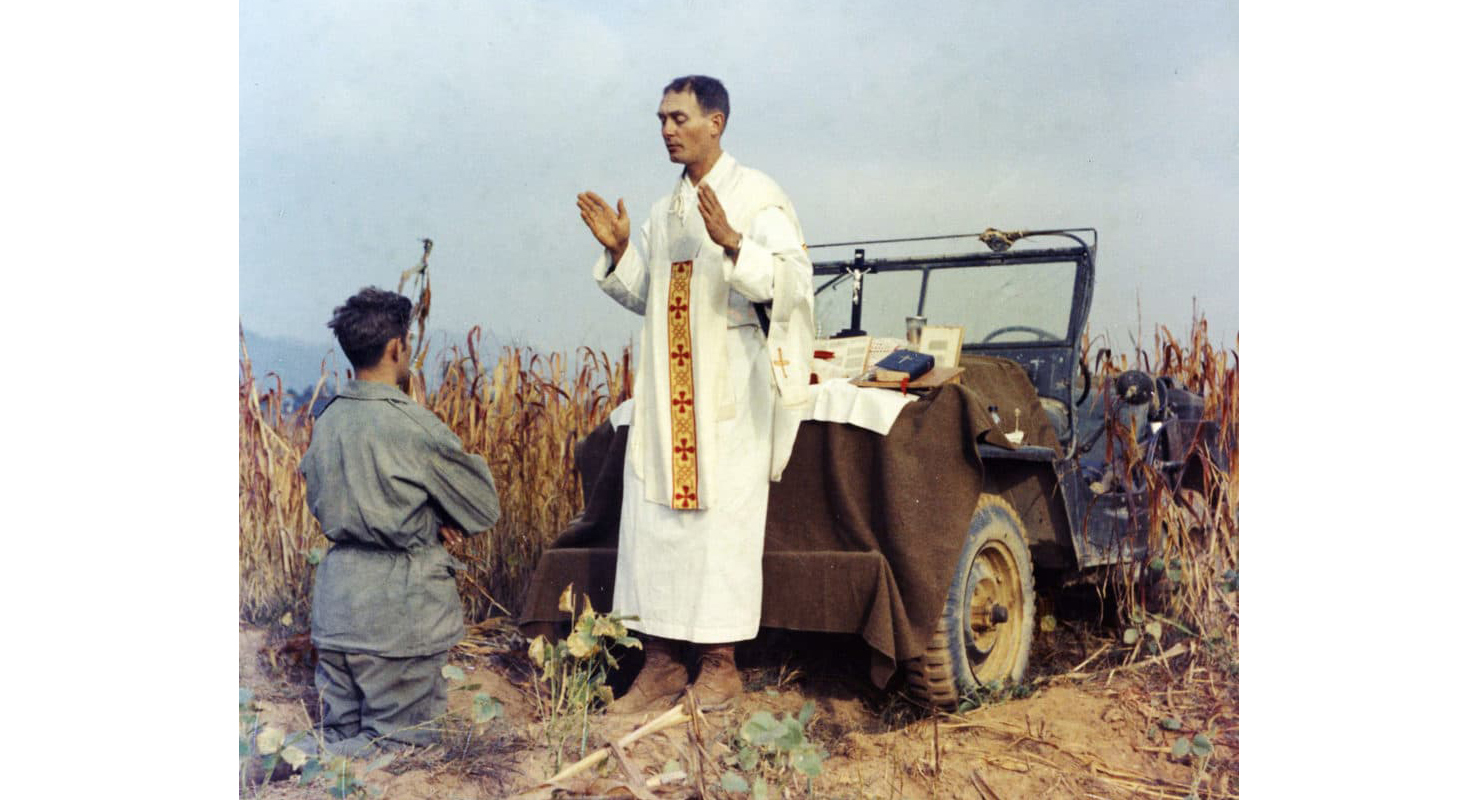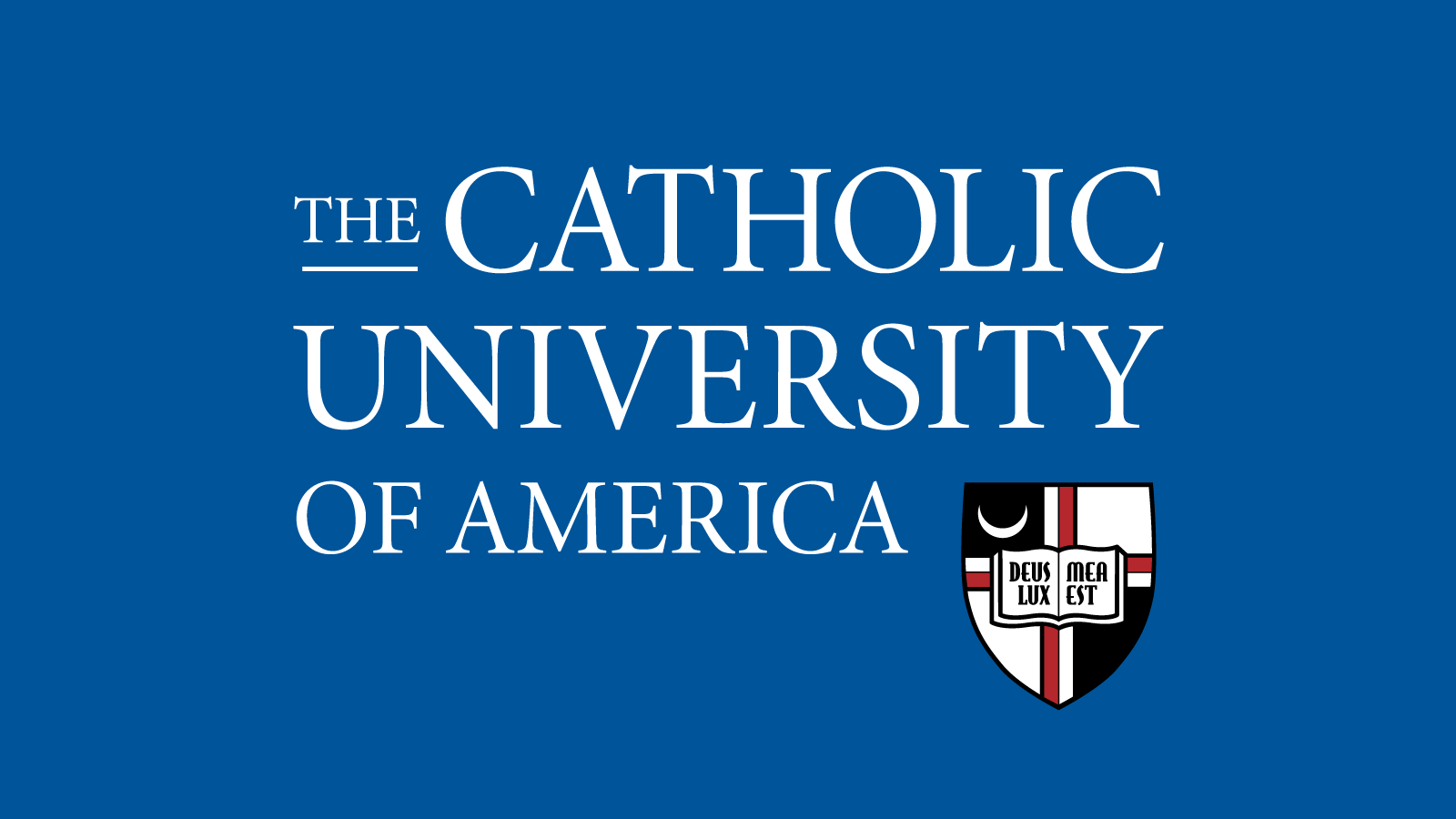When actor and comedian Bob Newhart died on July 18 at the age of 94, many in The Catholic University of America community fondly recalled that he delivered the address at the 100th commencement ceremony on May 17, 1997. Newhart also received an honorary doctorate in humane letters from the University and was a proud parent of a Cardinal: his son, Timothy, graduated from the University in 1989 with a bachelor’s degree in English.
The Grammy and Golden Globe winner started his career as an accountant but rose to fame with his seminal standup comedy albums. The lifelong Catholic later became a household name with his sitcoms, “The Bob Newhart Show” and “Newhart.” The comedy legend won his first and only Emmy for his guest appearances on a more current show, “The Big Bang Theory.”
“I certainly don’t delude myself that there aren’t certainly more important things to do in life than make people laugh, but I can’t imagine anything that would bring me more joy,” Newhart told the graduates, families, faculty, and staff gathered.
Addressing the class of 1997, Newhart offered an unconventional take on how humor can shape and save lives. Throughout the speech, Newhart’s trademark dry and uproarious insight into faith and life was present.
“I’ve found that one other thing that humor does is it makes us free,” Newhart said. “That may seem like an odd conclusion, but as long as the tyrant cannot control the minds of free men, they remain free. Humor abounded behind the Iron Curtain and in POW camps.”
Read more of Newhart’s speech, “Humor Makes Us Free, Laughter Gives Us Distance” below.
----
Thank you very much.
Audience: "Hi, Bob."
"Hi, Bob," I know.
I'm going to go down in history for that. With all I've accomplished, I'm going to go down in history for "Hi, Bob."
I’m honored and moved to be asked to be the 1997 commencement speaker. These may appear to be tears but they are actually allergies. My son graduated from here in 1989 with a degree in English literature, specializing in the poetry of Yeats. As you all know, when you pick up the classified pages, you just see page after page for jobs for Yeats scholars.
When I was asked to be the commencement speaker I was reminded about a story about Jascha Heifetz, the famed violinist, and he was asked to play in Grange Hall in Minot, North Dakota and he agreed to do it sometime in December. As December came around the weather turned terrible in New York and he called up and said, "I'm sorry, I won’t be able to make it." The man who arranged for him to appear there said, "We have 3,000 people in Grange Hall here in Minot, could you try to?" And he said, "I will." So he finally got out of New York and flew to Denver, caught a small plane, and finally got into Minot at about 11 o'clock at night and walked into Grange Hall and there were 12 people in the Grange Hall.
He said, "I'm sorry I can't appear in front of such a small audience. You said there were 3,000 people here." And he said, "Well there were, but they were afraid you wouldn't show up."
He said, "I've never appeared in front of such a small audience." And the man who had arranged for him to be there said, "Jascha if you could just sing one or two songs, that would be ... "
So I somewhat feel like that, I'm very honored. I'm not sure you have the right man, but I’m very honored. I’m Irish Catholic, 3/4 Irish, 1/4. German, and I'm pretty sure the humor comes from the Irish side since the Germans have never been known as one of the great fun races of all time. The problem with Germans,
Germans are very Iiteral and American humor, we very often are very perverse in our humor and we will say the direct opposite of what we mean. A German tourist may stop and say, "I don’t mean to bother you but your friend Curly over there has no hair at all on his head, and Tiny is over 350 pounds."
I was raised Catholic and a lot of my friends are Jewish, others are Protestant. All religions are saying one thing, and that is "be nice to each other."
In the Catholic religion, as you know, we have a confession. And non-Catholics really don’t understand how we go into this little dark room and say the terrible things we’ve done during the week. But if you are raised Catholic there are certain tricks you learn: you sit in the very last pew and you watch the two lines move and whichever line moves the fastest that's the one you get into.
We've all done that.
Growing up in Chicago, the best time to go to confession was during the Notre Dame-SMU game. You could tell that priest anything: "I just killed my family." "Well, don’t do it again, my son," and you could hear the game on in the background.
The hardest part I found in being Catholic was when you had to learn the commandments for your first confession. The first one was “Thou shalt not worship false idols."
I grew up in Chicago, as I said, and I don't know about D.C., but you could drive around Chicago for 10-12 miles and never even see a false idol. Even if you do, the last thing you are going to do is stop your car and worship it.
Maybe turn to your wife and say: "Lock your door, honey, I’m pretty sure that's a ...yeah, that's a false idol over there."
The other one that threw me was "Thou shalt not covet thy neighbor's wife." Now, I was 7 and I always thought the priest was saying thou shalt not "cover" thy neighbor's wife, and I didn't want to do that anyway. But apparently, it's only a sin if you cover thy neighbor's wife.
You can cover all the other wives in the neighborhood and you're home free, but the minute you cover thy neighbor's wife you'd better get to confession.
In preparation for today, I read a number of other commencement addresses. There seems to be an obligatory reference to Aldous Huxley's Brave New World. And also to give the perception that you are intelligent, you don't actually have to BE intelligent, but just create the perception. This can usually be accomplished by a reference to Katka even if you have never read any of his ... or her, works.
A recurrent theme running throughout commencement addresses is that what the speaker does for a living is worthwhile.
So I will now attempt to justify what I do for a living. I was amazed when I reread some of the books I had previously read on humor and laughter by the breadth of people who have written on the subject, starting with Aristotle, Plato, Hobbes, Freud (who devoted an entire treatise on it), Kant, Schopenhauer, Spenser, and Arthur Roestler, who devoted the first 90 pages of his book The Act of Creation to humor and its place in the creative process.
I’ve found that one other thing that humor does is it makes us free. That may seem like an odd conclusion, but as long as the tyrant cannot control the minds of free men, they remain free. Humor abounded behind the Iron Curtain and in POW camps.
Humor is also our way of dealing with the inexplicable. We had an earthquake a couple of years ago in Los Angeles, and it wasn’t more than three or four days later that I heard the first earthquake joke.
Someone said, "The traffic is stopped, but the freeways are moving." Laughter gives us distance. It allows us to step back from an event over which we have no control and deal with it and then move on with our lives. It helps distinguish us from animals.
No matter what hyenas sound like, they are not actually laughing. It also helps define our sanity. The schizophrenic has no sense of humor. His world is a constantly daunting, unfriendly place. The national man is able to find humor in his.
Erasmus wrote in Praise of Folly, "No society, no union in life could be either pleasant or lasting without me," of course, meaning folly.
People with a sense of humor tend to be less egocentric and more realistic in their view of the world and more humble in moments of success and less defeated in times of travail.
I certainly don't delude myself that there aren't certainly more important things to do in life than make people laugh, but I can’t imagine anything that would bring me more joy.
Now I would like to congratulate the class of 1997. Congratulations!



